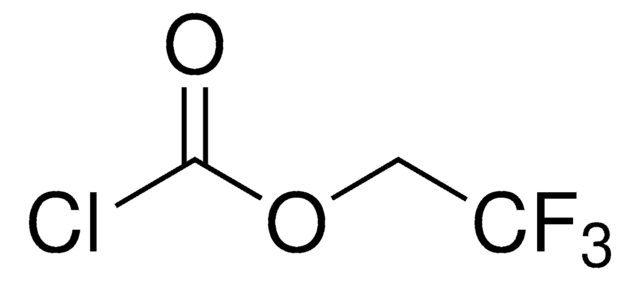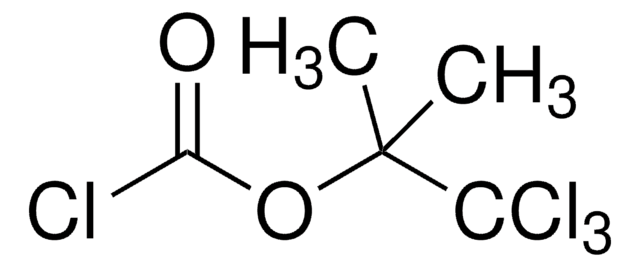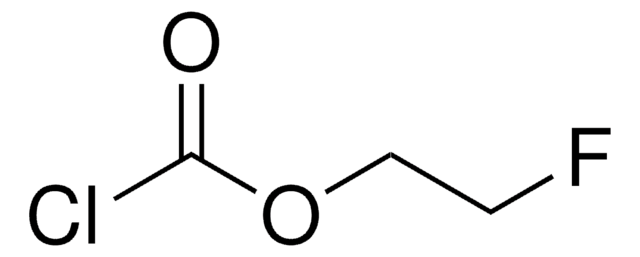142077
2,2,2-Trichloroethyl chloroformate
98%
Synonym(s):
2,2,2-Trichloroethoxycarbonyl chloride
About This Item
Recommended Products
vapor pressure
0.06 psi ( 20 °C)
Assay
98%
form
liquid
refractive index
n20/D 1.471 (lit.)
bp
171-172 °C (lit.)
density
1.539 g/mL at 25 °C (lit.)
storage temp.
2-8°C
SMILES string
ClC(=O)OCC(Cl)(Cl)Cl
InChI
1S/C3H2Cl4O2/c4-2(8)9-1-3(5,6)7/h1H2
InChI key
LJCZNYWLQZZIOS-UHFFFAOYSA-N
Looking for similar products? Visit Product Comparison Guide
General description
Application
- 2,2,2-Trichloroethyl chloroformate was used as derivatizing reagent in gas chromatographic/mass spectrometric determination of a large range of amphetamine-related drugs and ephedrines in plasma, urine and hair samples.
- It was used as starting reagent during the synthesis of 6-Nor-9,10-dihydrolysergic acid methyl ester.
- It was used as reagent during N-demethylation of dextromethorphan.
- It was used as protecting reagent for aliphatic and aromatic hydroxyl and amino groups.
Signal Word
Danger
Hazard Statements
Precautionary Statements
Hazard Classifications
Acute Tox. 3 Inhalation - Eye Dam. 1 - Skin Corr. 1B
Storage Class Code
6.1A - Combustible acute toxic Cat. 1 and 2 / very toxic hazardous materials
WGK
WGK 3
Flash Point(F)
Not applicable
Flash Point(C)
Not applicable
Personal Protective Equipment
Certificates of Analysis (COA)
Search for Certificates of Analysis (COA) by entering the products Lot/Batch Number. Lot and Batch Numbers can be found on a product’s label following the words ‘Lot’ or ‘Batch’.
Already Own This Product?
Find documentation for the products that you have recently purchased in the Document Library.
Customers Also Viewed
Our team of scientists has experience in all areas of research including Life Science, Material Science, Chemical Synthesis, Chromatography, Analytical and many others.
Contact Technical Service













